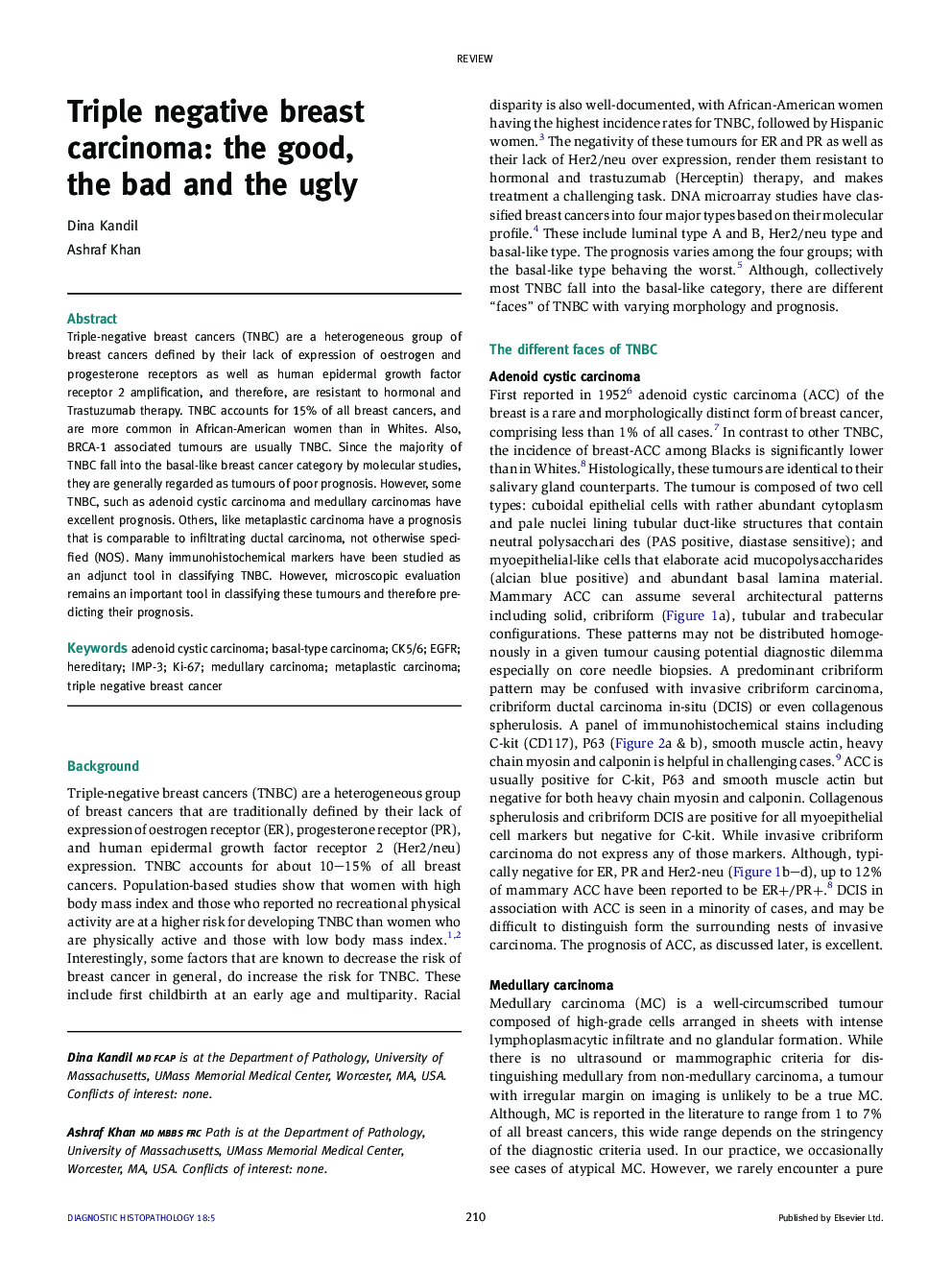| Article ID | Journal | Published Year | Pages | File Type |
|---|---|---|---|---|
| 4131358 | Diagnostic Histopathology | 2012 | 7 Pages |
Triple-negative breast cancers (TNBC) are a heterogeneous group of breast cancers defined by their lack of expression of oestrogen and progesterone receptors as well as human epidermal growth factor receptor 2 amplification, and therefore, are resistant to hormonal and Trastuzumab therapy. TNBC accounts for 15% of all breast cancers, and are more common in African-American women than in Whites. Also, BRCA-1 associated tumours are usually TNBC. Since the majority of TNBC fall into the basal-like breast cancer category by molecular studies, they are generally regarded as tumours of poor prognosis. However, some TNBC, such as adenoid cystic carcinoma and medullary carcinomas have excellent prognosis. Others, like metaplastic carcinoma have a prognosis that is comparable to infiltrating ductal carcinoma, not otherwise specified (NOS). Many immunohistochemical markers have been studied as an adjunct tool in classifying TNBC. However, microscopic evaluation remains an important tool in classifying these tumours and therefore predicting their prognosis.
